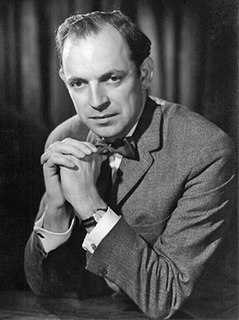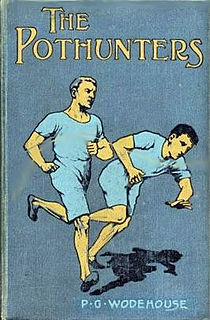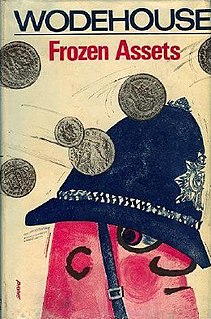
Viscount Hill, of Hawkstone and of Hardwicke in the County of Salop, is a title in the Peerage of the United Kingdom. It was created in 1842 for General Rowland Hill. He had already been created Baron Hill, of Almaraz and of Hawkstone in the County of Salop, in 1814, with remainder to the heirs male of his body, and Baron Hill, of Almarez and of Hawkestone and Hardwicke in the County of Salop, in 1816, with remainder to the heirs male of his elder brother John Hill. The viscountcy was created with the same special remainder. On the first Viscount's death in 1842, the barony of 1814 became extinct as he had no male issue, while he was succeeded in the barony of 1816 and the Viscountcy according to the special remainders by his nephew Sir Rowland Hill, 4th Baronet. His son, the 3rd Viscount, sat as a Conservative Member of Parliament for Shropshire North. In 1875, he assumed by Royal licence the additional surname of Clegg, which was that of his maternal grandfather. He inherited financial problems from his father which led to the breakup and sale of the family estates.

William John Biffen, Baron Biffen, was a British Conservative politician. A member of the House of Lords, he previously spent 36 years in the House of Commons and served in Margaret Thatcher's Cabinet.

The John Innes Centre (JIC), located in Norwich, Norfolk, England, is an independent centre for research and training in plant and microbial science. It is a registered charity grant-aided by the Biotechnology and Biological Sciences Research Council (BBSRC), the European Research Council (ERC) and the Bill and Melinda Gates Foundation and is a member of the Norwich Research Park.

Sarah Biffen, also known as Biffin, Beffin, or by her married name Mrs E.M. Wright, was a Victorian English painter born with no arms and only vestigial legs. She was 94 cm (37 in) tall. She was born in 1784 in Somerset. Despite her handicap she learned to read, write and paint using her mouth. She was apprenticed to a man named Dukes who exhibited her as an attraction throughout England. In the St. Bartholomew's Fair of 1808, she came to the attention of George Douglas, the Earl of Morton who then went on to sponsor her to receive lessons from a Royal Academy of Arts painter, William Craig. The Society of Arts awarded her a medal in 1821 for a historical miniature and the Royal Academy accepted her paintings. The Royal Family commissioned her to paint miniature portraits of them. When the Earl of Morton died in 1827, Biffen was left without a noble sponsor and she ran into financial trouble. Queen Victoria awarded her a Civil List pension and she retired to a private life in Liverpool. Some years later she married and 12 years later tried to renew her success with the name Mrs. Wright but this was not successful. She died on 2 October 1850 at the age of 66.

Baron Cobbold, of Knebworth in the County of Hertford, is a title in the Peerage of the United Kingdom. It was created in 1960 for the banker Cameron Cobbold. He was Governor of the Bank of England from 1949 to 1961.

The Pothunters is a novel by P. G. Wodehouse published on 18 September 1902 by Adam & Charles Black. It was Wodehouse's first published novel, and the first of several school stories, this one set at the fictional public school of St. Austin's. It was originally published as a serial in the British magazine Public School Magazine from January to March 1902. An American edition was issued from imported sheets.
Sir Rowland Harry Biffen FRS was a British botanist, mycologist, geneticist and a professor of agricultural botany at the University of Cambridge who worked on breeding wheat varieties. He was also a gifted artist known for his landscapes in watercolours. He was the founder of the Journal of Agricultural Science.

Frozen Assets is a novel by P.G. Wodehouse, first published in the United States on 14 July 1964 by Simon & Schuster, Inc., New York under the title Biffen's Millions, and in the United Kingdom on 14 August 1964 by Herbert Jenkins, London.
The British Mycological Society is a learned society established in 1896 to promote the study of fungi.

Margaret Thatcher was Prime Minister of the United Kingdom from 4 May 1979 to 28 November 1990, during which time she led a Conservative majority government. She was the first woman to hold that office. During her premiership, Thatcher moved to liberalise the British economy through deregulation, privatisation, and the promotion of entrepreneurialism.
Margaret Thatcher became the first female Leader of the Conservative Party and Leader of the Opposition after winning the 1975 leadership election, the first Conservative leadership election where the post was not vacant. A rule change to enable the election was largely prompted by dissatisfaction with the incumbent leader, Edward Heath, who had lost three of four general elections as leader, including two in 1974. After announcing her first Shadow Cabinet in February 1975, she reshuffled it twice: in January and November 1976. Minor subsequent changes were necessary to respond to various circumstances. Thatcher's Shadow Cabinet ceased to exist upon her becoming Prime Minister following the 1979 general election.

Benjamin Peary Pal or B.P. Pal FRS was an Indian plant breeder and agronomist who served as a director of the Indian Agricultural Research Institute in Delhi and as the first Director General of the Indian Council of Agricultural Research. He worked on wheat genetics and breeding but was also known for his interest in rose varieties.

The 1992 election of the Speaker of the House of Commons occurred on 27 April 1992, in the first sitting of the House of Commons following the 1992 general election and the retirement of the previous Speaker Bernard Weatherill. The election resulted in the election of Labour MP Betty Boothroyd, one of Weatherill’s deputies, who was the first woman to become Speaker. This was at a time when the Conservative Party had a majority in the House of Commons. It was also the first contested election since William Morrison defeated Major James Milner on 31 October 1951, although Geoffrey De Freitas had been nominated against his wishes in the 1971 election.
The Biffen Lecture is a lectureship organised by the John Innes Centre, named after Rowland Biffen.
This page is based on this
Wikipedia article Text is available under the
CC BY-SA 4.0 license; additional terms may apply.
Images, videos and audio are available under their respective licenses.









